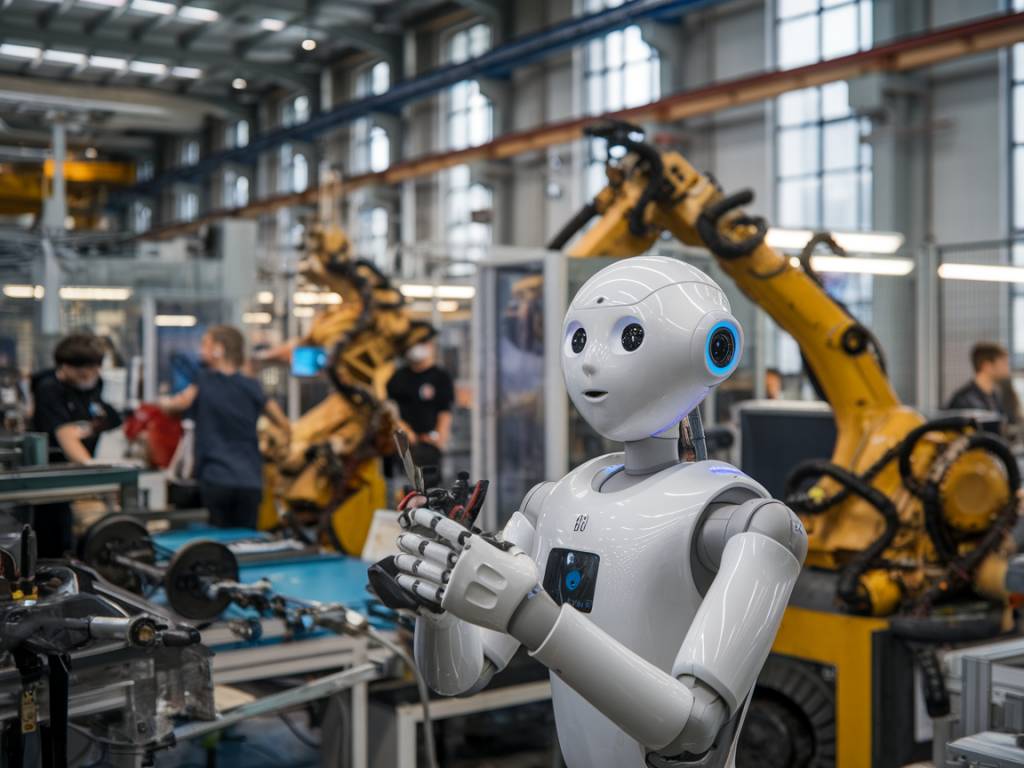The Rise of Automation: A Workforce in Flux
Automation is no longer a distant specter haunting the labor market—it’s here, reshaping industries, redefining roles, and forcing professionals to adapt at an unprecedented pace. From self-checkout kiosks to artificial intelligence-driven analytics, the way we work continues to evolve. But as machines take over repetitive and data-driven tasks, where do humans fit into this new landscape?
Industries Transforming Under Automation
Technology is infiltrating almost every aspect of the workforce, but some industries are feeling the impact more acutely:
- Manufacturing: Robotics have long been a fixture in assembly lines, but modern advancements in AI and machine learning are pushing automation to new heights. Smart factories now employ autonomous systems that predict maintenance needs and optimize production with minimal human intervention.
- Retail and Customer Service: The rise of self-checkout machines and AI-powered chatbots means fewer jobs for cashiers and service representatives. Companies are investing in virtual assistants to handle basic inquiries, letting human employees focus on complex customer needs.
- Transportation & Logistics: With self-driving trucks on the horizon and warehouse robots streamlining order fulfillment, traditional logistics roles are at risk. Companies like Amazon and Tesla are accelerating the push toward automation, sparking debates about the future of human drivers.
- Finance & Banking: Robo-advisors, AI-driven fraud detection, and automated trading systems are making finance more efficient—but they’re also displacing traditional banking roles. Even high-paying jobs in investment banking are being redefined.
Job Displacement vs. Job Creation
The automation debate often focuses on job losses, but history suggests another side to the story. While certain roles disappear, new opportunities emerge. The Industrial Revolution eliminated countless manual labor jobs, yet it also created entirely new career paths. Could today’s wave of automation follow a similar trajectory?
According to a report by the World Economic Forum, automation could displace 85 million jobs by 2025—but it could also create 97 million new roles. Many of these jobs center around technology, data science, and AI oversight, requiring a workforce with new skill sets.
The Skills Employers Now Seek
As machines take over repetitive tasks, employers are prioritizing skills that machines can’t easily replicate:
- Critical Thinking & Problem-Solving: AI is proficient at analyzing data, but human intuition and creativity remain essential for strategic decision-making.
- Emotional Intelligence: From healthcare to HR, roles that require empathy, negotiation, and relationship-building are less susceptible to automation.
- Technical Fluency: Understanding automation tools, coding, and data analysis is becoming a baseline requirement in many industries.
- Adaptability: The workforce of the future will belong to those who can pivot and learn new skills as industries evolve.
Challenges and Ethical Considerations
The rapid adoption of automation raises pressing concerns. Will companies prioritize cost-cutting at the expense of their employees? What happens to workers in industries where reskilling isn’t a viable option? Governments, corporations, and educational institutions must collaborate to mitigate the impact of displacement.
Universal basic income (UBI) has emerged as a potential solution. By providing a financial cushion, UBI could allow individuals to retrain and transition into new career paths without the immediate pressure of unemployment. However, critics argue over its economic feasibility and potential impact on workforce motivation.
Who Wins and Who Loses?
The automation revolution doesn’t affect all workers equally. Blue-collar jobs in manufacturing and logistics face higher risks of displacement, while white-collar fields such as journalism, law, and medicine are evolving rather than disappearing. Nonetheless, even traditionally “safe” professions are experiencing AI-driven disruptions. Law firms use AI-powered legal research tools, and AI-driven diagnostics are enhancing modern medicine.
Freelancers and gig workers may also feel pressure to adapt. While platforms like Upwork and Fiverr provide global opportunities, automation is increasingly competing with entry-level creative professions. AI-generated content, translation, and design tools are beginning to encroach on human creativity.
What Comes Next?
The future of work isn’t about humans versus machines—it’s about collaboration. Automation will redefine roles, not obliterate them. The key lies in adaptation, continuous learning, and leveraging technology as an ally rather than a competitor.
For employees, staying ahead means reskilling, upskilling, and embracing lifelong learning. For businesses, balancing efficiency with ethical responsibility will determine how smoothly this transition unfolds. And for policymakers, addressing workforce displacement with proactive measures will be crucial to ensuring a just and equitable future.
The job market is experiencing a seismic shift. The question is no longer whether automation will change the workforce, but how we, as a society, will navigate that transformation.
